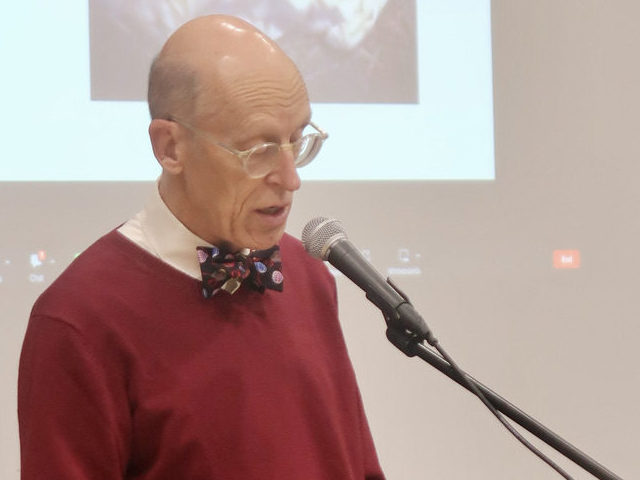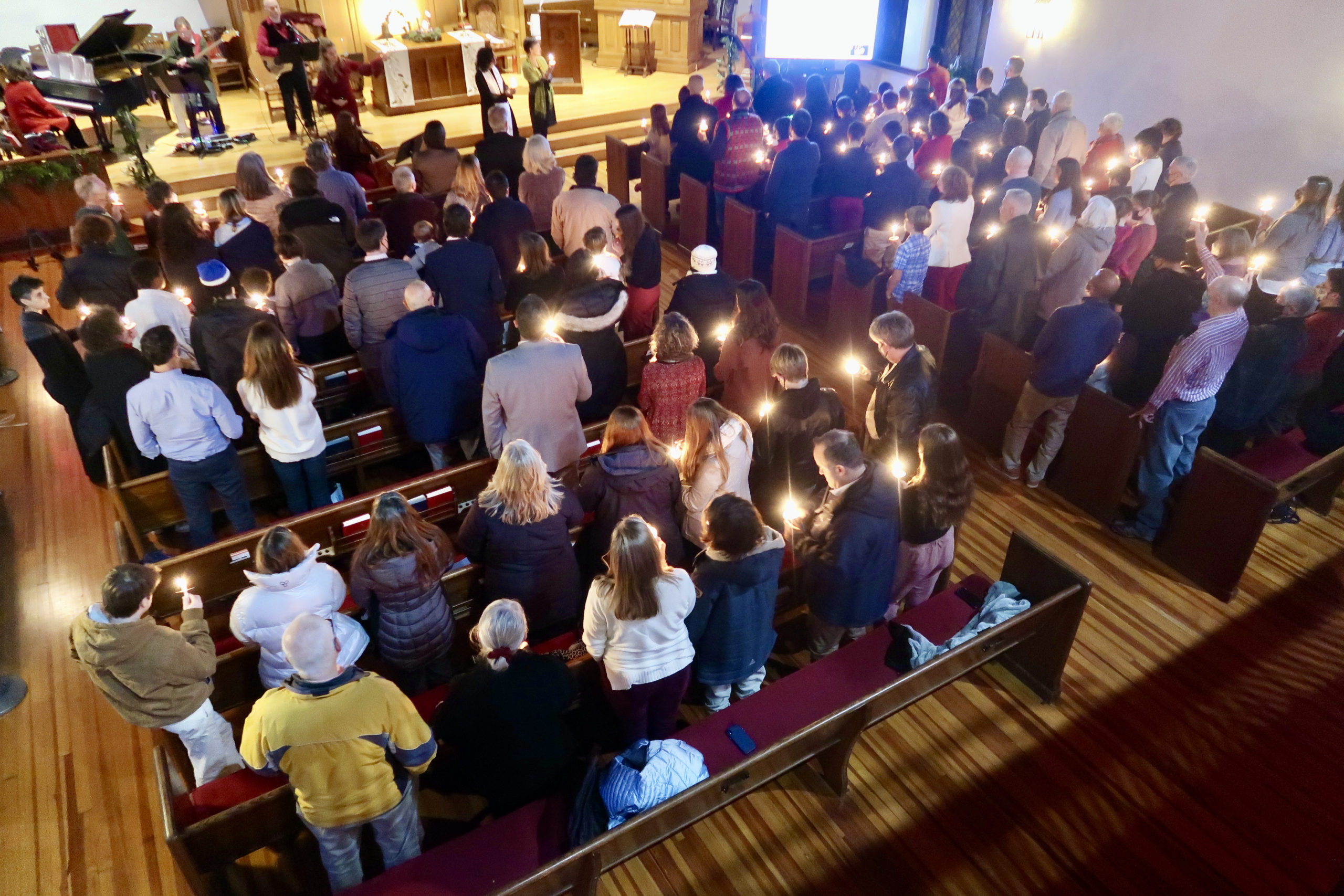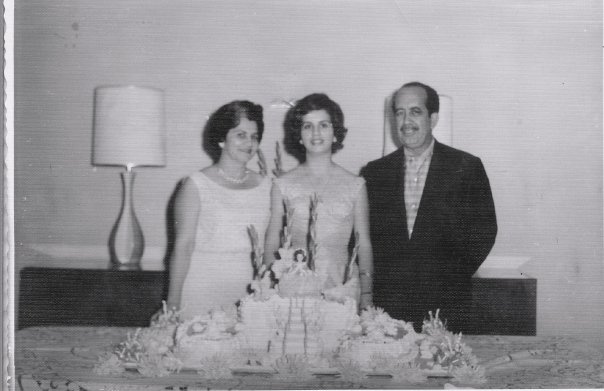by IFFP member Larry Bostian
In the Christian tradition, we celebrate the Feast of Epiphany on January 6, the 12th day of Christmas. It marks the visit of the three wise men to the baby Jesus and his family, described in Matthew’s gospel. The Christian Scriptures actually give us two different versions of Jesus’ birth, each with an epiphany: Matthew’s, with the visit of the wise men who follow a star; and Luke’s, where the shepherds are visited by an angel.
The Scriptures are funny that way. It’s a bit like the two creation stories in Genesis. In the first, God creates the world in six days and rests on the seventh, giving us the Sabbath. In the second, we read about Adam and Eve in the Garden of Eden and their temptation and Fall. The authors and editors weren’t bothered by inconsistencies, since they were trying to describe something for which they could hardly find words. In both Genesis and the Gospels, the two versions tell different aspects of the same story.
So, what is an epiphany? It means manifestation, the concrete appearance of something we can’t usually see, or even imagine seeing. In the Bible, it’s when God or angels appear directly to us humans. We might think how great it would be to behold God, but in these wonderful ancient stories, an epiphany is usually scary. Think about it:
In the Hebrew Scriptures, there’s Job, who’s been angrily challenging God for all the woes and difficulties he’s suffering. He demands to be heard, but instead, he sees God and is abashed. In one translation, Job says, “I have seen things too wonderful for me, and I am content that I am dust.”
In the Torah, in the book of Exodus, God shows God’s self to Elijah, but first God hides Elijah in a crevice in the rock and tells him he must only see God’s back when God whistles past in the wind.
In Luke’s gospel in the Christian scriptures, Mary, the mother of Jesus, is greatly troubled by the strange news the angel Gabriel brings to her.
Again in Luke’s gospel, the first thing the angels say to the shepherds, who have thrown themselves on the ground in terror, is “Fear not.”
Such encounters represent a fork in the road. For the people experiencing these epiphanies, there’s a before and a really different after. And if we read them with open minds and hearts, these stories demand our attention and they challenge us to act.
Epiphanies can be shocking and disturbing like the burning bush Moses comes upon. They can also be gentle and subtle, easy to miss if we’re not paying attention. Often in the Gospels, we read about Jesus’ exasperation at his disciples’ thickheadedness. We can almost see him with his arms outstretched, thinking, “Come on, guys!” He often ended his parables by saying, “Let them who have ears to hear, listen.”
The epiphanies we encounter in Scriptures are inviting and encouraging the shepherds and wise men and all the others to pay close attention, to stay open to surprise and wonder, to the presence of the divine in the world. We’re invited to do that, too. There’s more going on here than you can imagine, these stories tell us. Pay attention. This is important.
There have been a few epiphanies in my own life. Almost 30 years ago, my mother became very ill after surgery. I hurried home to be with her. When I entered her hospital room, I was immediately aware of God’s presence. There was no voice or image, but it was as real as any train wreck.
In the year after our son, Jack, died, a mockingbird, singing its heart out, flew down next to me on the Metro platform. For a moment I was filled with joy; I felt I was being visited by an angel.
Another one stands out in particular this time of year. I’ve told this story before. I hope you’ll forgive me for sharing it again. Jack died on Epiphany five years ago. Each year we light a candle and bring to mind sweet stories from our lives with him. In 2008 we had driven down to Tennessee to be with him at Christmastime. Jack was living then at a treatment facility for young people with mental illness and substance use problems. We’d gotten permission to take him with us to a vacation cabin on the condition that we bring him to a 12-step recovery meeting every day. On our last day together, we’d found a meeting scheduled at a country church. We printed out the directions – this was before GPS – but the roads weren’t very well marked and it was getting dark. Anxious and worried, we finally found the little church and its basement fellowship hall. There we were met by three older men – they and we were the meeting that night – and they and our family shared our experience, strength, and hope in that nonjudgmental 12-step way.
It struck me afterwards that we had met the three wise men. I don’t remember exactly what any of us said, but I’ll never forget the warmth of their welcome as we sat in that little circle on a dark winter night. And I’ll never forget what my spiritual director then, a Catholic priest, said afterwards when I shared this story with him: “And they met the holy family.”
In today’s reading from Deuteronomy, Moses challenges the Israelites to choose life. Our Scriptures tell us we are made in God’s image. In the second century Bishop Irenaeus wrote, “The glory of God is the human being fully alive.”
These epiphany stories aren’t just about Job or Elijah or the wise men and the shepherds. They are about us and they’re addressed to us. They’re challenging us to take seriously the message that we – ourselves, our families and loved ones, and yes, strangers and our enemies – are created in the divine image. We are all children of God. You are a child of God. They ask us to hold ourselves open to the possibility that we might experience an epiphany. They remind us that awe and wonder are right there for us. Epiphany wants us to be able to say, as the poet E.E. Cummings put it,
“Now the ears of my ears awake and now the eyes of my eyes are open. May it be so.”



